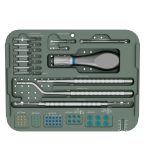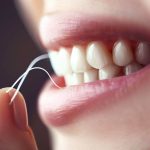Dental implants rank among the most favored and efficacious methods for replacing missing teeth. However, akin to any surgical endeavor, they entail a degree of discomfort and pain during the postoperative phase. In their quest to furnish solace to their patients, dental professionals have diligently cultivated several alternative avenues for mitigating postoperative discomfort following dental implant procedures. Within the confines of this blog, we shall embark on an exploration of these alternatives and their potential in assuaging the pangs of discomfort.
One progressively embraced approach in the realm of pain management revolves around the utilization of non-steroidal anti-inflammatory drugs (NSAIDs) such as ibuprofen or aspirin. Frequently prescribed in tandem with opioids or other prescription remedies, NSAIDs wield their prowess in ameliorating inflammation and the ensuing discomfort subsequent to dental implant surgery. Furthermore, empirical evidence has illuminated the possibility that this combination may rival the efficacy of opioids in isolation when it comes to the management of post-implantation discomfort.
Another avenue for assuaging the pain associated with dental implantation involves the deployment of lenitive care products such as Rinsible™ by Revive™. These specialized rinse supplements are imbued with lidocaine hydrochloride, affording instantaneous respite to oral tissues – a balm to the gum tenderness frequently encountered following implant placement surgery. They proffer an alternative path free from codeine, augmenting the effects of local anesthesia administered during surgery, making it an efficacious formula for those grappling with noticeable swelling or mild root sensitivity.
Beyond the realm of pharmaceutical interventions, holistic strategies also emerge as allies in the post-surgical recuperation and management of implant-linked discomfort. One such avenue encompasses meditation practices – mindfulness techniques serve to pacify the muscles encircling the implant site, unburdening pressure points that often manifest following bone grafting procedures, all without the recourse to medication.
The application of thermal or cooling pads in proximity to the surgical sites assumes another pivotal role. It serves to enhance blood circulation, particularly in the presence of swelling, thereby alleviating the stiffness innate to the facial tension often linked with dental surgery. This, in turn, aids the body’s innate recovery mechanisms and bolsters the realignment of gum tissue cells, which may otherwise be hindered by inflammation.
Lastly, the bastion of good oral hygiene remains the most salubrious route to naturally alleviate discomfort and curtail the risk of implant-related infections. The steadfast practice of regular brushing, flossing, and the utilization of organic antimicrobial mouthwash can accelerate the swiftness of the recovery phase. Pain management in the context of dental implants ultimately hinges upon individual circumstances, and thus, interventions tailored to specific scenarios shall usher in relief.
In summation, the effective management of post-implantation discomfort assumes paramount significance in ensuring patient well-being and a seamless healing process following surgery. While conventional prescription medications confer immediate relief, it is prudent for dental practitioners to explore milder alternatives. These may range from relaxation techniques to the complementary support systems proffered by Rinsible™ by Revive™, rooted in a holistic, all-natural ethos. Collaborating closely with dental professionals unlocks the potential to expedite recovery through evidence-based solutions, all while safeguarding comfort levels – a quintessential objective in any surgical endeavor!



